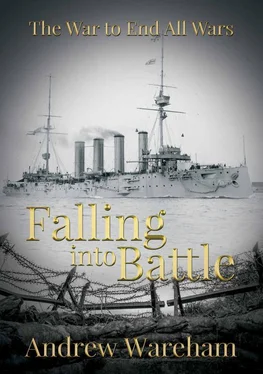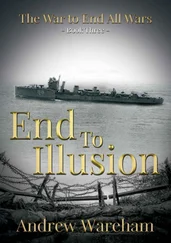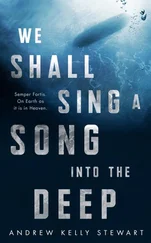The Admiralty heard of the undignified disposal of Naval corpses by mid-afternoon. Their reaction was to contact all of the newspapers, local and national, to persuade them not to mention the incident, ‘for the sake of the grieving wives and children and parents’.
The press considered its patriotic duty and the morning’s papers announced in banner headlines the obliteration of the cowardly Hun minelayer by the heroes of the Navy. Lesser paragraphs proclaimed the total destruction of Woodpecker by an illegal floating mine, wickedly laid by German criminals. No mention was made of the disposal of the recovered bodies, other than to state that they would be buried with full military honours, the first of the few who would sacrifice themselves to protect their nation’s future and the Empire’s glory.
“Bastards!”
Captain Smallwood tossed his newspaper to one side and returned to business.
“Signal preparative to sail, Mr Dacres. What’s that on the quay?”
“A running midshipman, sir, followed by a railway porter with two cases on a trolley.”
“Could be a good lad, that one, Mr Dacres. Never managed to make a porter hurry himself in all my career.”
“It is an achievement, sir. Perhaps he has a half-crown dragging behind him on a piece of string and the porter trying to catch up to it.”
“Carrot on a stick to get the donkey to hurry? Might work. Get him aboard, Mr Sturton.”
The midshipman panted his way to the deck where he stood and saluted.
“Midshipman Parrett reporting to join, sir.”
“Welcome aboard, Mr Parrett. Have you tipped your porter yet? He seems quite anxious.”
Simon nodded to a hand to collect the suitcases from the trolley before the porter could fling them into the harbour as he saw Parrett taking a thruppenny bit from his pocket.
“I would not recommend that, Mr Parrett. Here.”
He handed the boy a florin, saw him pass it across to the irate railwayman, heard the response.
“Two bloody bob, for running all the way from the station? Don’t bankrupt yourself, your lordship!”
“I say, sir. That’s not very polite to an officer and a gentleman.”
“Shut up, Mr Parrett, and be thankful he did not kick you. If you had given him just thruppence he undoubtedly would have. Report to Captain Smallwood on the bridge. Smith, take the midshipman’s cases to his accommodation.”
Simon could not refer to the little box as a cabin.
The hand picked the suitcases up again.
“Aye aye, sir. Leave ‘em outside the door, shall I, sir?”
It would probably be impossible to put them inside and leave space enough for the boy to stand.
“Do that, Smith.”
Simon made his way to the stern to check the screws as they left their berth, the last time he would perform that duty. Parrett would take over from him, as the most junior of officers.
Being on a destroyer with no space there was no gunroom for warrant officers and the single midshipman would have to mess in the wardroom, which was rapidly becoming crowded by extra bodies.
Sheldrake led the two survivors of the section to the harbour mouth, saluting every ship senior to them, a surprisingly large number of vessels including three massive and outdated cruisers.
“Aboukir, Cressy and Hogue, sir. Reserve Fleet. They have the southern North Sea Patrol, sir. Dogger Bank and the Broad Fourteens and too close to the German ports for safety.”
“Big, slow and hopeless, Mr Dacres. Never served in one. What are they exactly?”
“Twelve thousand tons, sir. Crew of about seven hundred and fifty – mostly reservists and made up by boys from the training ships and Dartmouth, sir. Twenty-two knots, when new -which they ain’t, by a long way - and cumbersome. Very big and they turn slowly, sir. Not in perfect condition now after two years sat in dock in Reserve. Their captains are dug-outs, men who have failed to be considered for admiral and have been brought back from half-pay ashore to be put in charge of old wrecks. Their guns are old-fashioned and too many of them on the broadside; standard for cruisers of the day – a pair of nine point two turret guns and six inch in double sponsons on the sides. They were a bad design, rushed into in response to the big Russian commerce destroyer built in the Nineties. The new German cruisers would tear them to shreds, sir.”
“God help them if they ever see action, Mr Dacres.”
“I was told they were to be escorted when went out on patrol, sir. Their job is to provide a big gun back-up to the destroyers – which don’t make a lot of sense but better than leaving them on their own. The one thing in their favour is that they are good sea boats and will stay out when the destroyers have to run from a storm.”
“Don’t know about that, Dacres. Things are changing, in any case. Haven’t been given the details, but the word is that Captain D is going up in the world – made rear admiral somewhere - and the Harwich Patrol is to be led by a younger, go-ahead man. Should be told what’s what in a few days.”
The three ships made their patrol and saw nothing other than fishing boats, mostly Dutch. It was a useful exercise for the new midshipman, he never having sailed in a small ship before.
“Gets the spewing over before he needs to do anything useful, Mr Sturton!” Captain Smallwood seemed rather amused at the boy’s plight. “Only a little chap – wouldn’t have thought he had so much vomit in him! Whoops! There he goes again! Keep an eye on him, Mr Sturton, don’t let him fall over the side in his enthusiasm. Get him a tot – neat rum will either kill him or cure him.”
Simon was almost amused.
He took the midshipman below for a few minutes.
“Don’t worry, Polly. Nelson was always sick on his first few days at sea. Every time he sailed. The important thing is to keep going – don’t let it stop you. Drink plenty of water – don’t let yourself dry out. Try to eat something, then at least you won’t be dry retching. I want you on the forward four inch this watch. Get to know the crew and watch them through their drill. No live firing today. Afternoon watch, I shall show you the Lewis Gun and give you a few rounds for practice. Good for me, as well – I was only shown how to handle it yesterday when they were installed.”
The mid was inured to his nickname – Parrett was a burden for a sailor. He staggered to the forecastle and watched as the gun was exercised. He knew how to handle a four inch breech loader, had been trained at Dartmouth, and thought, despite his misery, that he could improve their speed and effectiveness. The biggest single problem was that ammunition had to be passed up from the forecastle through a small hatch just in front of the bridge – expensive in men, it needed four bodies to run the rounds and charges from the magazine to the hatch and then stretch up to put them in the hands of the ammunition passers above them. There was no ladder and the hands had got into the habit of pulling a table across to stand on underneath the hatch.
The mid reported his conclusions to Simon, who was de facto Gunnery Officer, although a destroyer had no such position.
“A sudden roll, sir, and the man on the table could fall off with a live shell in his arms. At best, it would interrupt the flow of rounds to the gun.”
“And at worst it could lead to an explosion. Well spotted, Mid. Stand back! If you are going to spew, not over my shoes!”
A great effort and Parrett managed to control his revolting belly.
“Other than that, sir, they just need more experience.”
“Agreed. The forecastle gun is often out of action due to weather when the others are still able to drill. They don’t get the amount of practice they need. Do what you can in harbour, but don’t rob them of their time ashore.”
Читать дальше












